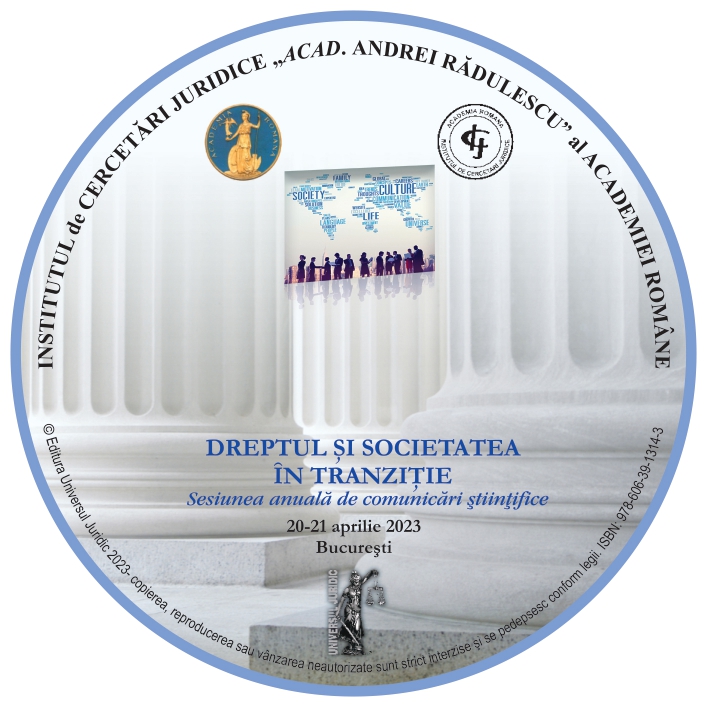Inteligența artificială la încheierea contractelor. Și cum rămâne cu protecția datelor personale?
Artificial Intelligence When Concluding Contracts. And What About Personal Data Protection?
Author(s): Mirela-Carmen Dobrilă
Subject(s): Economy, Law, Constitution, Jurisprudence, Civil Law, ICT Information and Communications Technologies
Published by: Universul Juridic
Keywords: Contract; Negotiation of a Contract; Concluding the Contract; Artificial Intelligence; Consent; Good Faith; GDPR; Personal Data;
Summary/Abstract: Artificial intelligence means rapidly evolving technologies that are created to optimize operations, but the use of artificial intelligence must be considered in close relation to human and ethical implications. An observation of the risks associated with the use of artificial intelligence is required in certain situations, especially as artificial intelligence systems are designed to be increasingly autonomous, where the system is designed to learn and act on previously observed effects. Thus, technologies inevitably evolve and we witness the use of artificial intelligence in the conclusion of contracts. The article analyzes aspects regarding the use of artificial technology in the negotiation of a contract and at the stage of concluding the contract; then they are analyzed in close connection with the principle of contractual freedom and the principle of good faith when negotiating and concluding the contract. Within the article, the use of artificial intelligence at the conclusion of the contract is analyzed in relation to the existence of a valid consent of the contracting parties; it is necessary to ask ourselves what are the risks and limits related to artificial intelligence and the condition of the existence of serious, free and informed consent. Some aspects related to the use of artificial intelligence at the conclusion of the contract and the risks (or advantages) that exist regarding the observance of the right to the protection of personal data are also analyzed, the observance of the General Data Protection Regulation (RGPD) being mandatory. Given that, at this moment, we are witnessing the use of artificial intelligence in numerous fields, and which can (or not?) replace the realization of a scientific work by a human or even replace the human judge (or not?) in the courtroom judgement, the question we propose to answer (or not) is whether artificial intelligence in the conclusion of the contract can be equivalent to the conclusion of the contract based on human thinking and whether there are risks associated with the conclusion of the contract based on artificial intelligence, respectively if personal data is reviewed.
Book: Dreptul si societatea in tranzitie
- Page Range: 71-89
- Page Count: 19
- Publication Year: 2023
- Language: Romanian
- Content File-PDF

